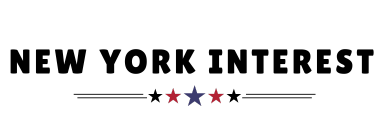Venezuelans head to the polls on Sunday for their first full presidential election in over a decade after opposition parties ended their boycott and coalesced around a single candidate in hopes of ousting the current regime.
“The de facto opposition leader Maria Corina Machado has galvanized the Venezuelan people to the point that both Chavistas and anti-Chavistas in Venezuela want a change,” Joseph Humire, the executive director of the Center for a Secure Free Society (SFS), told Fox News Digital.
“But changing the president is not enough,” Humire cautioned. “Regardless of who is Venezuela’s next president, the criminal system embedded in Venezuelan institutions will adapt and continue operating. An internal effort is necessary but insufficient to dismantle the Venezuela Threat Network.”
“Yet, this doesn’t take away from what Maria Corina has done regardless of the outcome on Sunday – give Venezuelans another chance,” he added.

Opposition supporters have backed Edmundo Gonzalez, who had an overwhelming lead over the incumbent Venezuelan President Nicolas Maduro heading into the weekend, according to the BBC. Maduro has warned that a defeat for his United Socialist Party of Venezuela (PSUV) would result in a “bloodbath.”
PSUV led a coalition that holds 256 of the 277 seats in the country’s National Assembly, and has control over Supreme Tribunal of Justice courts and the National Electoral Council. The opposition could never unite behind a single candidate, and parties boycotted the 2018 election because of accusations that free and fair elections were not possible under Maduro’s government.
Humire on social media platform X posted polling data that showed expected results based on low or high levels of expected voter participation, in both cases showing Maduro getting around half as many votes as Gonzalez would get.
Humire speculated that Maduro must either engage in massive fraud to steal the election or strike a deal to stay in power.

Demonstrations held Thursday ahead of the vote drew thousands to the capital, where Maduro claimed his opponents promoted violence while he wanted only peace, and the opposition faced an uphill battle to get their message out: State television did not broadcast any of the opposition rally, according to The Associated Press.
And Reuters reported that Venezuelans abroad have struggled to register to vote as bureaucratic hurdles have kept all but a small fraction of voters from being ready for Sunday.
Maduro succeeded Hugo Chavez as leader of the PSUV following the latter’s death and assumed office in 2013, and the party has remained in power for over a quarter of a century, making the election on Sunday a potentially pivotal point for the whole country.
“Against all odds, overcoming the immense geopolitical occupational forces present in Venezuela, the criminal enterprise in power and the entrenched cleptocratic regime … Sunday’s election could mark the beginning of the end of the most disastrous political catastrophe in our country’s history,” Isaias Medina III, former U.N. Security Council diplomat and Harvard Mason fellow, told Fox News Digital.
“Should this happen, the ensuing development and growth of our nation will be unparalleled, driven by Western-minded policies with allied nations that will rectify the 21st-century socialist aberrations entrenched over the last two decades in the richest country in the region,” Medina said. “Like a city on a hill, a free Venezuela shall shine again.”




